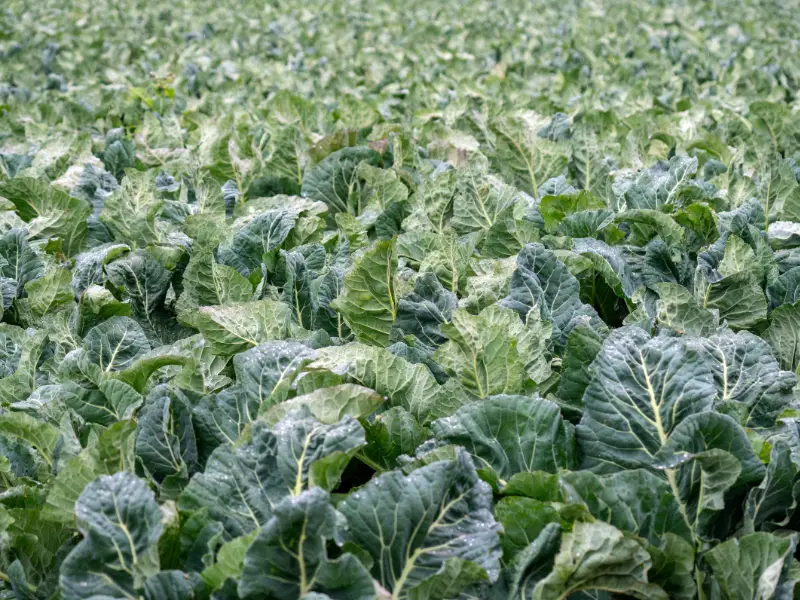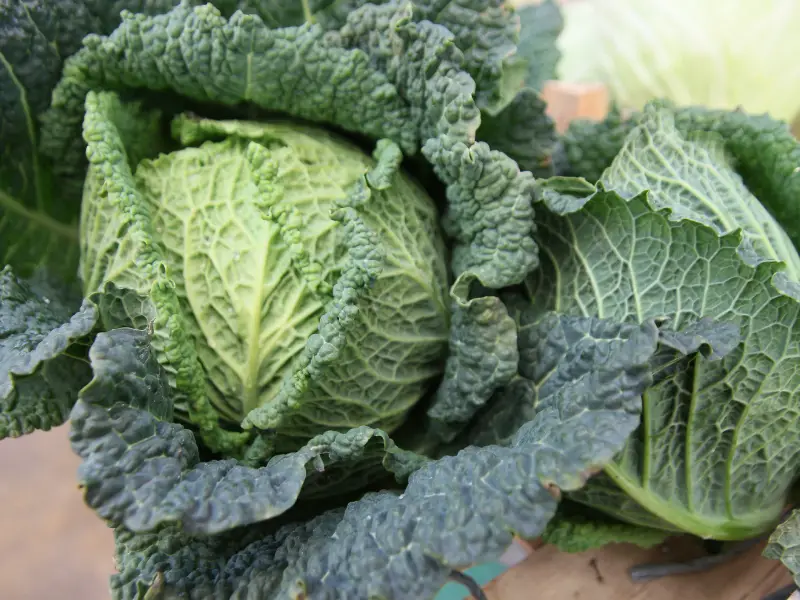Rabbits are adorable and beloved pets that require a balanced and nutritious diet to maintain their health. Owners often wonder what vegetables and fruits they can feed their furry friends. One common question is whether rabbits can eat collard greens.
Collard greens are leafy green vegetable that is packed with nutrients such as vitamin A, vitamin C, and calcium. They are an excellent addition to a human’s diet, but can rabbits eat collard greens too? The answer is yes, rabbits can eat collard greens in moderation. However, it is important to ensure that collard greens are not the only vegetable in their diet and that they are introduced gradually to avoid digestive issues.
Can rabbits eat raw collard greens?
Rabbits are herbivores and can eat a variety of vegetables, including collard greens. However, it is important to know how to properly feed them to your furry friend. In this section, we will discuss whether rabbits can eat raw collard greens.
Raw collard greens are safe for rabbits to eat in moderation. They are a good source of vitamins A, C, and K, as well as calcium and fiber. However, it is important to introduce them gradually into your rabbit’s diet to avoid digestive issues.
It is recommended to feed collard greens to your rabbit as part of a balanced diet, alongside hay, fresh water, and other vegetables. A general guideline is to feed your rabbit one cup of fresh vegetables per two pounds of body weight per day.
When feeding raw collard greens to your rabbit, make sure to wash them thoroughly to remove any dirt or pesticides. You can also chop them into small pieces to make it easier for your rabbit to eat. Avoid feeding your rabbit collard greens that are wilted or have yellow leaves, as they may not be fresh and could cause digestive issues.
In summary, rabbits can eat raw collard greens as part of a balanced diet, but it is important to introduce them gradually and in moderation. Always wash them thoroughly and avoid feeding your rabbit collard greens that are not fresh.
Benefits of Feeding Collard Greens to Rabbits

Collard greens are an excellent source of nutrition for rabbits. They are low in calories, high in fiber, and rich in vitamins and minerals. Here are some of the benefits of feeding collard greens to rabbits:
1. Rich in Vitamins and Minerals
Collard greens are loaded with vitamins and minerals that are essential for the health of rabbits. They are an excellent source of vitamin A, which is important for maintaining healthy vision, skin, and immune function. Collard greens also contain vitamin C, which is essential for the production of collagen and helps to protect against disease. Additionally, they are rich in calcium, which is important for strong bones and teeth.
2. High in Fiber
Collard greens are an excellent source of fiber, which is essential for maintaining a healthy digestive system in rabbits. Fiber helps to keep the digestive tract moving and prevents the buildup of harmful bacteria in the gut. It also helps to regulate blood sugar levels and can reduce the risk of obesity.
3. Low in Calories
Collard greens are low in calories, which makes them an excellent choice for rabbits who are overweight or at risk of becoming overweight. They are also a great option for rabbits that are prone to digestive issues, as they are easy to digest and won’t put a strain on the digestive system.
In conclusion, collard greens are an excellent source of nutrition for rabbits. They are rich in vitamins and minerals, high in fiber, and low in calories, making them a healthy addition to any rabbit’s diet.
Risks of Feeding Too Much Collard Greens to Rabbits
Collard greens are a nutritious vegetable that can provide a variety of health benefits to rabbits when fed in moderation. However, feeding too much collard greens to rabbits can cause several health risks that should not be overlooked.
Digestive Issues
Feeding too much collard greens to rabbits can lead to digestive issues such as diarrhea, bloating, and gas. Collard greens are high in fiber, which can be beneficial for rabbits, but excessive amounts can be difficult for their digestive system to handle.
Calcium Imbalance
Collard greens are also high in calcium, which can be a concern for rabbits if they are fed too much. Rabbits require a balanced calcium-to-phosphorus ratio in their diet, and an excess of calcium can lead to bladder stones and urinary tract issues.
Oxalates
Collard greens contain oxalates, which can bind to calcium in the body and form crystals. This can lead to the formation of kidney stones and other health issues in rabbits.
Moderation is Key
While collard greens can be a healthy addition to a rabbit’s diet, it is important to feed them in moderation. A good rule of thumb is to feed collard greens as a treat, rather than a staple food, and to limit the amount to one or two leaves per day for an average-sized rabbit.
In conclusion, while collard greens can provide a variety of health benefits to rabbits, it is important to feed them in moderation to avoid potential health risks. By keeping a balanced diet and limiting the amount of collard greens, rabbits can continue to enjoy this nutritious vegetable as a treat.
How many collard greens can I give my rabbit?
When it comes to feeding collard greens to rabbits, it’s important to keep in mind that moderation is key. While collard greens are a nutritious and tasty addition to your rabbit’s diet, too much of a good thing can be harmful.
As a general rule of thumb, rabbits should have a diet that consists of about 80% hay, 10% fresh vegetables, and 5% fresh fruits. The remaining 5% can be made up of treats or other special foods.
When it comes to collard greens specifically, it’s recommended that rabbits have no more than 1-2 cups of collard greens per 2 pounds of body weight per day. For example, a 6-pound rabbit could have up to 3-6 cups of collard greens per day.
It’s important to introduce collard greens slowly and gradually into your rabbit’s diet, as sudden changes can cause digestive upset. Start with a small amount and gradually increase over several days.
Additionally, it’s important to wash collard greens thoroughly before feeding them to your rabbit to remove any pesticides or other contaminants that may be present.
Overall, collard greens can be a healthy and tasty addition to your rabbit’s diet when fed in moderation.
Can Baby Rabbits Eat Collard Greens?
Collard greens are a nutritious vegetable that many people enjoy, and they are also safe for adult rabbits to eat. However, when it comes to baby rabbits, it is important to be cautious about introducing new foods into their diet.
Baby rabbits have delicate digestive systems that are still developing, and feeding them the wrong foods can cause serious health problems. As such, it is important to introduce new foods slowly and in small amounts.
When it comes to collard greens, it is generally safe to feed them to baby rabbits in moderation. However, it is important to note that collard greens are high in calcium, which can be a problem for baby rabbits.
Too much calcium can cause a condition called “bladder sludge,” which can lead to bladder stones and other health problems. As such, it is important to limit the amount of collard greens that baby rabbits eat and to ensure that they are getting a balanced diet that includes plenty of hay and fresh water.
In general, it is best to wait until baby rabbits are at least 12 weeks old before introducing them to new foods like collard greens. This will give their digestive systems time to mature and reduce the risk of health problems.
Overall, collard greens can be a healthy addition to a rabbit’s diet, but it is important to be cautious when feeding them to baby rabbits. By introducing new foods slowly and in moderation, and ensuring that baby rabbits are getting a balanced diet, you can help keep them healthy and happy.
Related Articles:

